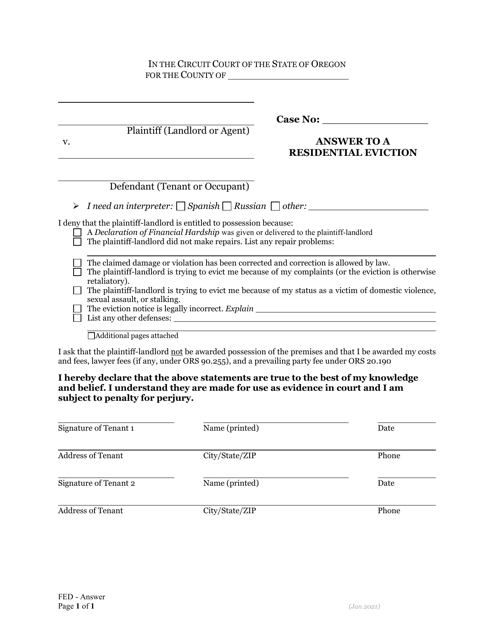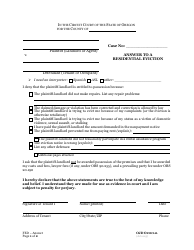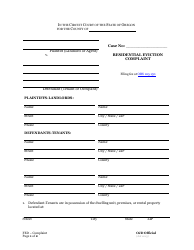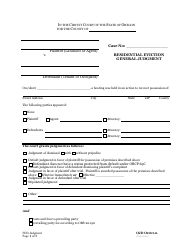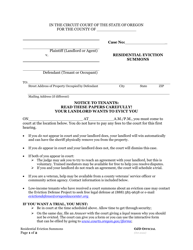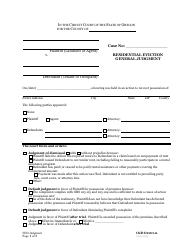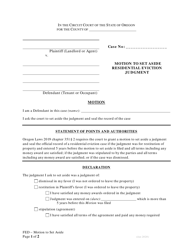Answer to a Residential Eviction - Fed - Oregon
Answer to a Residential Eviction - Fed is a legal document that was released by the Oregon Circuit Courts - a government authority operating within Oregon.
FAQ
Q: What is a residential eviction?
A: A residential eviction is the legal process by which a landlord can remove a tenant from a rental property.
Q: What are the reasons for a residential eviction in Oregon?
A: In Oregon, residential evictions may occur for reasons such as nonpayment of rent, violating the rental agreement, or engaging in illegal activities on the premises.
Q: What steps are involved in a residential eviction in Oregon?
A: The steps in a residential eviction in Oregon generally include providing notice to the tenant, filing a complaint in court, attending a court hearing, and obtaining a judgment of possession.
Q: What is the notice period for a residential eviction in Oregon?
A: In Oregon, the notice period for a residential eviction varies depending on the reason for eviction, ranging from 24 hours to 90 days.
Q: Can a landlord physically remove a tenant in Oregon?
A: No, in Oregon, a landlord cannot physically remove a tenant. Only law enforcement officers can carry out an eviction and remove a tenant from the property.
Q: What can a tenant do if facing eviction in Oregon?
A: If facing eviction in Oregon, a tenant can seek legal advice, negotiate with the landlord, or contest the eviction in court.
Q: Are there any protections for tenants during the eviction process in Oregon?
A: Yes, tenants in Oregon have certain rights and protections during the eviction process, such as the right to receive proper notice and the right to contest the eviction in court.
Q: Can a tenant be evicted during the COVID-19 pandemic in Oregon?
A: During the COVID-19 pandemic, there are special protections in place in Oregon that may prevent evictions for certain reasons, such as nonpayment of rent.
Form Details:
- Released on January 1, 2021;
- The latest edition currently provided by the Oregon Circuit Courts;
- Ready to use and print;
- Easy to customize;
- Compatible with most PDF-viewing applications;
- Fill out the form in our online filing application.
Download a printable version of the form by clicking the link below or browse more documents and templates provided by the Oregon Circuit Courts.
